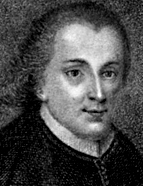

Melo Freire's most significant contribution to historical legal literature came in response to the new statutory requirements for teaching law at the university, particularly the need for didactic compendia (R. M. Figueiredo Marcos, A História do Direito [History of Portuguese Law], 2017, pp. 38 ff.). Bringing an end to the repeated delays by the lecturers in carrying out the task, he was the first to systematise a history of Portuguese public law, work that was published under the title Historiae Juris Civilis Lusitani (1788). His Institutiones Juris Civilis Lusitani, cum Publici tum Privati (4 tomes, 1789-1793), a comprehensive summary of the law in force, and the Institutionum Juris Criminalis Lusitani (1794), a monograph influenced by the Enlightenment humanitarianism of Filangieri and Beccaria (M. J. Almeida Costa, op. cit., p. 250), were also echoed in a few new works, such as the project for a new statute for the Holy Office (L. Oliveira Ramos, Melo Freire, 1973), which forms the fifth book, separate from the previous ones. The six volumes, the last of their kind to be written in Latin, were first edited by the Academy and later by the University. First edited by the Academy and later by the University, Institutiones and Historiae were adopted as textbooks in 1805 for courses on National Law and the History of Roman and National Law.
The historical compendium was the result of a long process of establishing history as a preparatory discipline in legal studies (Historiae ..., 1815 [1788], p. XLIX; L. R. Torgal, História da História... [History of History...], 1996, pp. 25-26), a process in which Vernei played a key role. The compendium follows a method of synthesis inspired by Heinécio (1681-1741), aiming to provide a systematic, well-documented, and rational overview of legal history. Melo Freire divides his history of civil law into 13 chapters, establishing a periodisation of the development of Portuguese law. He seeks to avoid the fabrications of other authors and relies on the credibility of Lusitanian legal antiquities (Idem , p. LI). His work covers pre-Roman, Roman, and Lusitanian law (chaps. I-II) and the influence of Germanic, Leonese and Muslim law (chaps. III-IV), and emphasises the foundational actions of Henry the Navigator and King Afonso I (chap. V). It then traces legal development during the first dynasty (chap. VI), from the reigns of King John I to King Manuel I (chap. VII), and from the latter's reign to the establishment of the Philippine legal system (chap. VIII), which he examines in a dedicated section (chap. IX). The final chapters discuss the early Brigantine reigns (chap. X) and the legislative actions of King José I and Queen Maria I, for whom he expresses an undisguised sympathy (chap. XI). With the ultimate goal of asserting the originality of his work, Melo Freire situates it within the tradition of legal studies in Portugal, providing a list and categorisation of the notable jurists who preceded him (chap. XII). In the preface, he had already acknowledged the legacy of Monarchia Lusitana by Fr. Bernardo de Brito and António Brandão, whose brevity regarding legal matters he sought to address (Historiae...,1815 [1788], p. XLIX). The final chapter is dedicated to methods proposed for interpreting national law. It offers a critique of scholastic hermeneutics, grounded in the ideas of European theorists of rationalist natural law. In presenting one of these interpretations, Logica (Idem, chap. XIII, §§ CXXIV-CXXV), concerning the inquiry into the rationality of law, he emphasises the importance of understanding the historical context and the ethos behind legislative production (A. M. Hespanha, História… [History...], 1982, p. 30). The compendium became closely associated with the controversial opinions of the censor António Pereira de Figueiredo. Despite differences in style and content, the criticisms focused on key aspects: Pereira de Figueiredo reproached the lack of critical analysis in the selection of sources and pointed out certain historical omissions, such as the failure to explain the elective nature of Visigothic power or the concept of mental law (P. Ferreira da Cunha, “A Polémica…” [The Controversy...], 1994, p. 963).
This work is financed by national funds through FCT - Foundation for Science and Technology, I.P, in the scope of the projects UIDB/04311/2020 and UIDP/04311/2020.
